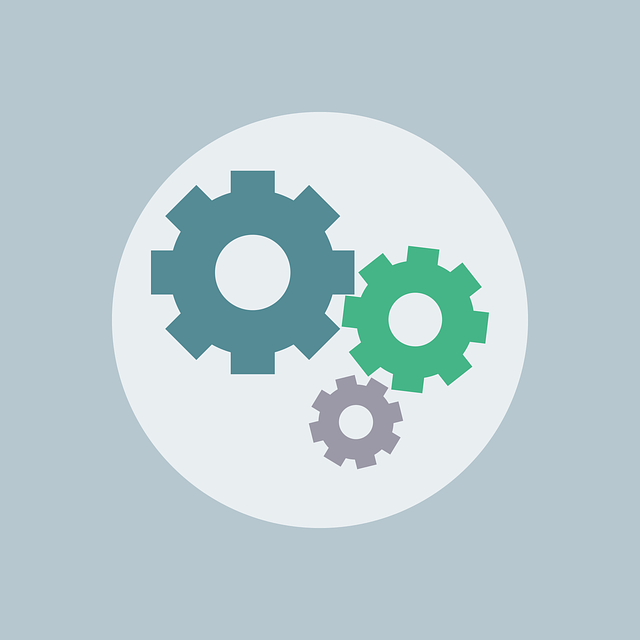Customer Relationship Management (CRM) software is a powerful tool for small businesses aiming to optimize operations and improve customer interactions. It consolidates customer data, streamlines communication, automates sales and marketing processes, and provides valuable insights. Top-rated CRM solutions like HubSpot, Zoho, Salesforce Small Business Cloud, Pipedrive, and Insightly offer robust features at affordable prices. Effective implementation involves choosing the right platform tailored to specific needs, optimizing settings, providing training, regularly reviewing analytics, and maintaining data integrity. This leads to enhanced productivity, better customer interactions, and increased revenue for small businesses.
Small businesses looking to streamline their operations and elevate customer interactions should explore the world of Customer Relationship Management (CRM) Software. This powerful tool can transform the way you manage relationships, track sales pipelines, and optimize processes. Understanding CRM’s potential is key to unlocking growth.
This article guides you through the essentials, highlighting crucial features, top-rated solutions, and implementation tips tailored for small enterprises eager to leverage CRM software for efficient, effective operations.
- Understanding Customer Relationship Management (CRM) Software for Small Businesses
- Key Features to Look For in CRM Software for Efficient Business Operations
- Top-Rated CRM Software Solutions for Small Enterprises
- Implementing and Optimizing CRM Software: Tips for Small Business Owners
Understanding Customer Relationship Management (CRM) Software for Small Businesses

Customer Relationship Management (CRM) software is a powerful tool for small businesses looking to streamline their operations and enhance customer interactions. It acts as a centralized system where businesses can manage and track every step of their customers’ journeys, from initial contact to sale and beyond. By organizing customer data, such as contacts, sales pipelines, and marketing efforts, CRM software enables small businesses to provide personalized service and make informed decisions.
This technology offers various functionalities tailored to different business needs. For instance, it can automate sales processes, providing insights into sales trends and forecasting. It also facilitates marketing by segmenting customers and allowing for targeted campaigns. Moreover, CRM systems often include features for managing customer support tickets, ensuring efficient issue resolution. With its ability to consolidate and analyze customer data, CRM software empowers small businesses to build stronger relationships, increase productivity, and ultimately drive growth.
Key Features to Look For in CRM Software for Efficient Business Operations

When choosing a Customer Relationship Management (CRM) software for your small business, look for key features that streamline operations and maximize efficiency. First, ensure the platform offers robust data management capabilities, allowing you to store and organize customer information securely and easily searchable. This includes contact details, purchase history, communication records, and any relevant notes or interactions. A good CRM should also facilitate seamless communication channels, enabling effective client engagement through email, phone calls, social media, and messaging platforms all in one place.
Additionally, automation tools are a must-have for efficient business processes. These features can help automate routine tasks like lead assignment, follow-ups, and marketing campaigns, freeing up valuable time for your team to focus on high-value activities. Look for CRM software that integrates with other essential business tools you already use, such as accounting or project management software, to ensure a unified workflow and avoid data silos. Ultimately, the best CRM should be adaptable to your business needs, scalable enough to grow with your operations, and user-friendly for quick adoption across your team.
Top-Rated CRM Software Solutions for Small Enterprises

When it comes to managing customer interactions and growing your small business, top-rated CRM software solutions are a game-changer. These tools help streamline sales processes, automate marketing efforts, and provide valuable insights into customer behavior. By investing in a robust CRM system, small enterprises can enhance their efficiency, improve customer satisfaction, and ultimately boost revenue.
There are numerous options available in the market today, catering to diverse business needs. Some of the leading CRM software solutions for small businesses include HubSpot CRM, Zoho CRM, Salesforce Small Business Cloud, Pipedrive, and Insightly CRM. Each offers unique features such as contact management, sales pipeline tracking, automated workflows, and analytics dashboards, enabling businesses to manage their customer relationships effectively at a fraction of the cost typically associated with enterprise-level CRM systems.
Implementing and Optimizing CRM Software: Tips for Small Business Owners

Implementing a CRM software is a strategic move for small businesses aiming to streamline their operations and enhance customer relationships. The key is to choose a platform that suits your unique needs, whether it’s managing contacts, tracking sales pipelines, or automating marketing campaigns. Once selected, optimizing the software becomes crucial. Start by customizing fields and workflows to match your business processes. Train your team effectively to ensure everyone understands how to use the system efficiently. Regularly review analytics and reports to gain valuable insights into customer behavior and sales trends. This data-driven approach will enable you to make informed decisions, refine strategies, and ultimately improve customer satisfaction and retention.
Additionally, staying organized is essential for successful CRM optimization. Set up clear workflows for data entry, lead management, and task assignments. Regularly backup your data to avoid any loss or corruption. Encourage a culture of data integrity within your team by establishing standard operating procedures for maintaining accurate records. By following these tips, small business owners can maximize the benefits of their chosen CRM software, leading to improved productivity, better customer interactions, and ultimately, increased revenue.
Choosing the right CRM software can significantly enhance small businesses’ customer interactions and operational efficiency. By understanding the essential features, navigating through top-rated solutions, and implementing best practices, entrepreneurs can unlock the full potential of Customer Relationship Management (CRM) tools. This article provides a comprehensive guide to help small business owners make informed decisions when adopting CRM software, ensuring they stay competitive in today’s market.
